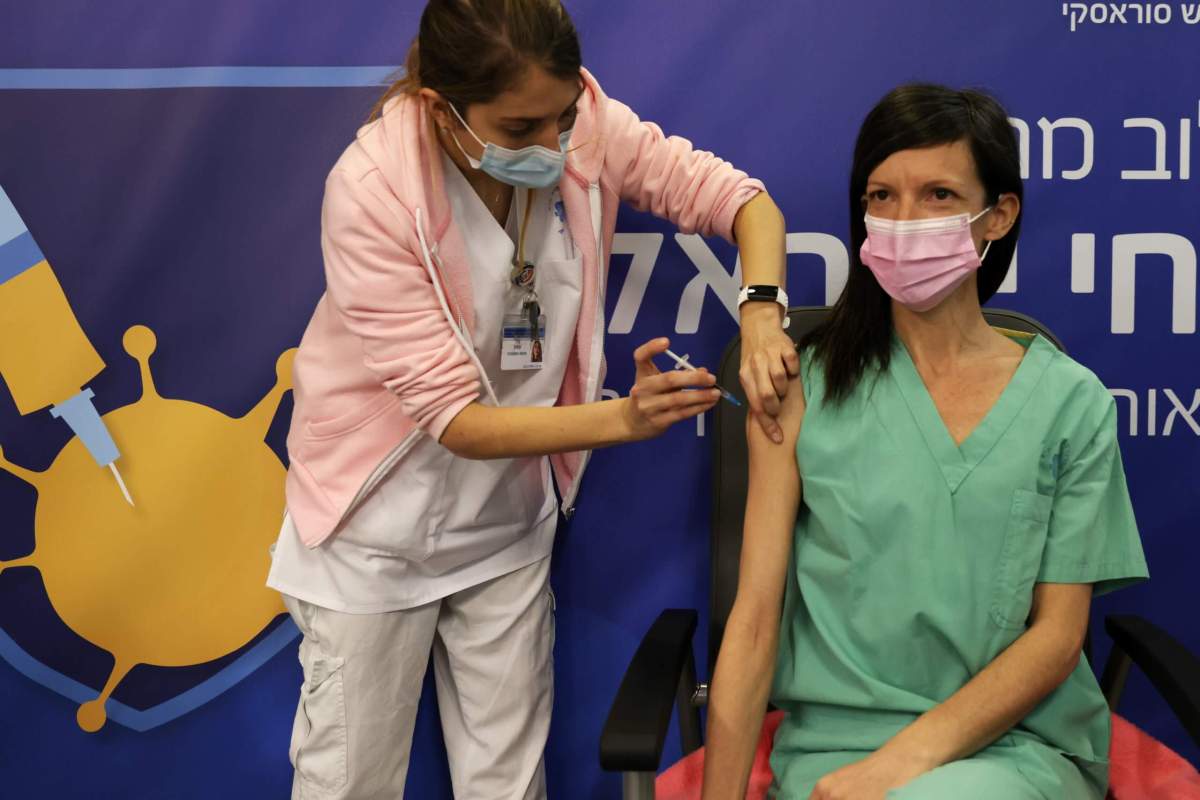By Dan Williams, Reuters
Israel’s coronavirus vaccination campaign, the world’s fastest per capita, shifted to booster shots on Sunday in a bid to protect the most vulnerable citizens by next month and ease curbs on the economy.
Israelis over the age of 60, those with health problems and medical personnel have been receiving first injections of Pfizer Inc. vaccines since Dec 19. As three weeks have passed, they are beginning to be due for follow-up, final doses.
“It changes everything,” said Guy Choshen, a director of the COVID-19 ward at Tel Aviv’s Ichilov Hospital, who got his second injection. “I’m really happy that I’m over that (and) looking forward for all this epidemic to be finished.”
The Health Ministry said 19.5% of the population have been vaccinated, including more than 72% of the over-60s. Latecomer elderly will be admitted for first shots, officials say, but otherwise vaccines will be reserved for boosters.
By mid-March roughly 5 million of the country’s 9 million citizens are expected to receive the vaccine.
Israel’s vaccination rate is by far the fastest compared to the rest of the world, according to the Our World in Data website, which is run by research organisation Oxford Martin School.
In second place is the United Arab Emirates, which as of Sunday had inoculated 10% of its population, followed by Bahrain and the United States at 5% and 2%, respectively.
At Ben Gurion Airport near Tel Aviv, Prime Minister Benjamin Netanyahu watched as crates of Pfizer vaccines were unloaded from a plane that arrived from Belgium. One official said the shipment contained 700,000-800,000 doses.
Netanyahu, who is up for re-election in March, said another large consignment would arrive a week later and that in the meantime Israel would accelerate its vaccination rate to 170,000 a day from the current 150,000.
He says the vaccination campaign will allow Israel to emerge from the pandemic in February.
Israel has in parallel tightened a lockdown to rein in a surge in coronavirus cases. Officials say public over-confidence in the vaccines may have led to laxity in other precautions and stoked fresh contagions.



































